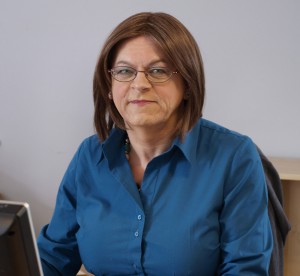It’s a conversation that will never end: if society has one standard and we don’t fit, and the standard doesn’t look like changing any time soon, what should we do? The choice is varied and individual, but the opinions collide when they are too strong. Those of us with a conviction that something was horribly wrong with our bodies almost from birth, have no need of a description other than of their innately-felt gender. Only one thing matters: correction. Being trans* is transitory. It ends. At the other end of the spectrum, those who appreciate and enjoy fluidity love to occupy and even celebrate being of mixed or ambiguous gender (or none).
And everything in between. For many the saying applies that transition never ends. It does mean that our relationships with cisgender or gender-binary social attitudes can be very different. Yet the one thing that probably occupies all of us along this spectrum, is the need to live within society with freedom of expression and acceptance as we are.
Ay, there’s the rub (as Hamlet said, thinking about uncertain dreams).
When celebrants of overt diversity are taken as icons of transness, those who wish to disappear into their singular (binary) gender identity (called going stealth) can find it hard. Whilst one will dance in a club and shout ‘I’m a tranny!’, reclaiming abuse as empowerment, the other lives in fear of some slight giveaway in their otherwise complete physical transition ‘outing’ them. I am more on the border, lucky enough to blend like camouflage except under closer inspection, happy enough to explain my position, and just seeking acceptance as always a bit different.
For me, cisgenderism (ie, insistence on the binary) is simply not good enough. The sheer numbers of us who do not fit, whatever our response, are overwhelming. A proportion of us are transsexual, meaning we have a sense of the binary and a definite preference that we feel we must attain, but that doesn’t mean we don’t recognise others are most definitely non-binary. I have no idea how many trans* people of all kinds I am nominally connected to thanks to the Internet, but it must run into many thousands around the world, even if we only count friends of friends, and there is a huge diversity.
Male and Female are as meaningless as the bodily humours in mediaeval medicine. They once sort of helped describe most animals at a very broad level, but I suppose it was also long before gender-changing creatures were discovered to be so. Nonetheless, cultures developed around the world that understood and held in esteem, those who were neither male nor female in some sense. And I cannot say this loud enough, in our culture that has forgotten this: the gender binary concept is false.
For me, though, it is still firmly in place. I have to accept that for the majority of people I am different. Two things have been on my mind in the past days and weeks: who notices and who cares? Whenever we see something that stands out a bit, we want to know why, so we can get it back into order in our minds. Today I was walking in busy streets and just felt noticed a bit more than usual. I don’t think the lack of mascara was the only reason, and maybe it really was only me, but when a couple walking by simultaneously look at you and hold their gaze a tad too long, you sort of know they spotted something not quite right. Does it bother me? No, not a lot, I just wish it never happened.
The other situation was potentially a lot more tricky. A new job. Suddenly I am under close scrutiny by the same people from 9 to 5 every day. And no, the voice does not hold up too well. I don’t think husky meant sexy! As it happens I have been incredibly well received. I know they know, of course. They know I know that too, etc. And I feel … well, normal. I am just me, and all my old skills, experience and knowledge are being used again, and I am just working. I know that some questions have been asked, and they have been formally answered, and I have had no sideways glances in my presence. It is lovely just to get on and do what I do, officially female, discernibly transsexual, but at work and earning my keep, hoping I don’t get asked about family things like marital status.
I got called ‘he’ twice this week. And I haven’t even worn trousers once. I put it down to fitting in with the blokes because my experience lies in understanding technology like they do, thinking about it like they do, explaining it as they do. Who else would discuss these things that way? ‘He’ does. Maybe she is not a proper woman after all. But accepted nonetheless.
As time goes on, I will recognise that they know I know they know about me, and I will freely correct them without feeling I am outing myself and needing to explain in more detail. But I shouldn’t have to. Being trans should already be so normal, because the gender binary is so patently incorrect, that it is OK to be unequivocally trans with whatever identity I choose to live with.
And so I accept my being different, I call it normal, and I recognise that some people do not get it. And this is why I feel so let down by the UK’s wonderful NHS. By the time I am prescribed hormones I shall be well on the way to being able to apply for my gender recognition certificate (GRC) simply by virtue of having got on and lived as a woman for long enough. Thank goodness for the Internet! These protracted periods of being unsupported, delayed, forced to live with a physiology that feels all wrong, may be called ‘real life experience’ by clinicians, but believe me, once you have committed yourself in society as ‘acceptably different’ you will know if there are any doubts, and every day you are forced not to progress is not ‘real’ at all, it is damaging. If you can’t get the hormones, if you can’t afford laser or electrolysis treatment, you can be unacceptably different for much too long.
It isn’t all grouse though. I want to thank the lovely people at work who have included me, by complimenting me on my dress, or my necklace, or my nails, and by sending me emails on doing my nails a different way, or where they get their favourite cosmetics. That all means I can live with this painfully slow journey into being as little different as possible.
(Just don’t call me ‘he’!)
 A few weeks ago, a handful of MPs stood up in the House and related their own struggles with mental illness. It’s something we don’t like to talk about. Partly it is because mental health and personality can seem inextricably related. Dementia takes the person out of the body we knew; depression makes happy people inaccessible to reassurance, comfort and love; strong people become fragile, and gentle people become angry. Obsessive compulsive disorders make other people perhaps even impossible to live with. Post-natal depression can make a loving mother hate her baby. However internal a physical ailment is, it is always external to the person. Mental illness seems to be internal to the person. It can seem to change the person. Does it? These are, if I am not being too presumptuous, common perceptions.
A few weeks ago, a handful of MPs stood up in the House and related their own struggles with mental illness. It’s something we don’t like to talk about. Partly it is because mental health and personality can seem inextricably related. Dementia takes the person out of the body we knew; depression makes happy people inaccessible to reassurance, comfort and love; strong people become fragile, and gentle people become angry. Obsessive compulsive disorders make other people perhaps even impossible to live with. Post-natal depression can make a loving mother hate her baby. However internal a physical ailment is, it is always external to the person. Mental illness seems to be internal to the person. It can seem to change the person. Does it? These are, if I am not being too presumptuous, common perceptions.
 The second spontaneous thought I had was from when I was just two years old. The photos have been thrown away now, but I still remember blue shorts, a yellow jumper with buttons on the shoulder, and a toy bulldozer, also blue and yellow – and the scent of wallflowers. Even now it is a smell that takes me right back to my pre-school days. I was in the garden as my dad dismantled a wall that had fallen between our garden and the next. He built a fence instead and reclaimed the bricks. They were really useful, and once cleaned became a compost bin, edging for all the flower beds, and a path the length of the garden. So we had, like the climbers to amuse the kids, a horizontal wall to walk up, into the sun at the end where my mother grew flowers on a small rockery.
The second spontaneous thought I had was from when I was just two years old. The photos have been thrown away now, but I still remember blue shorts, a yellow jumper with buttons on the shoulder, and a toy bulldozer, also blue and yellow – and the scent of wallflowers. Even now it is a smell that takes me right back to my pre-school days. I was in the garden as my dad dismantled a wall that had fallen between our garden and the next. He built a fence instead and reclaimed the bricks. They were really useful, and once cleaned became a compost bin, edging for all the flower beds, and a path the length of the garden. So we had, like the climbers to amuse the kids, a horizontal wall to walk up, into the sun at the end where my mother grew flowers on a small rockery.